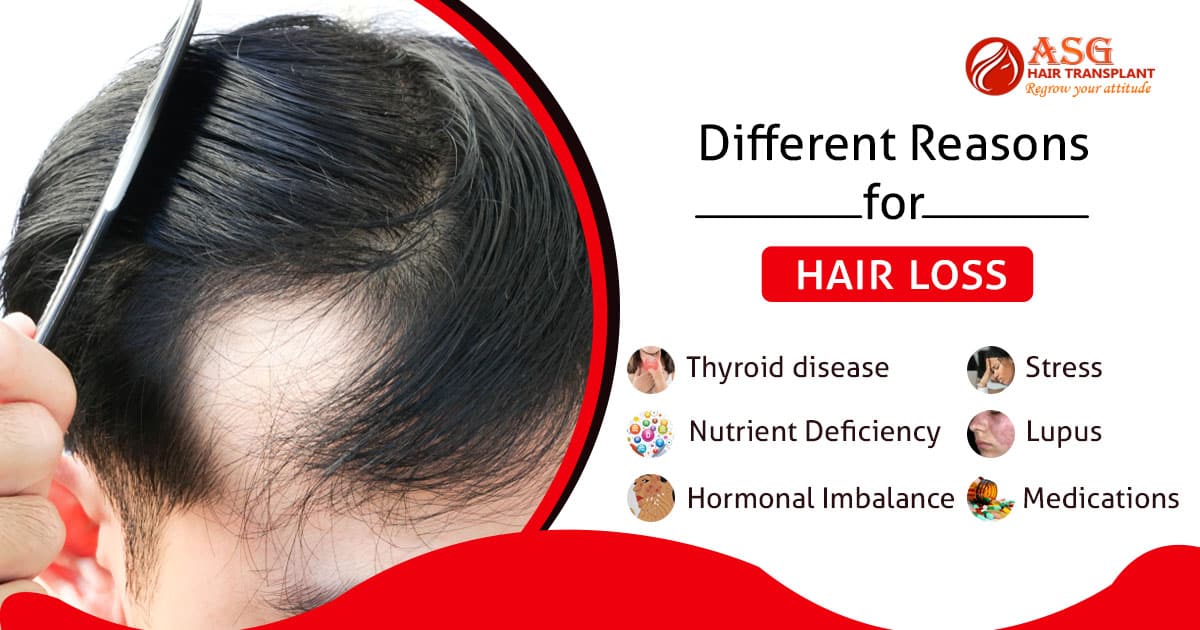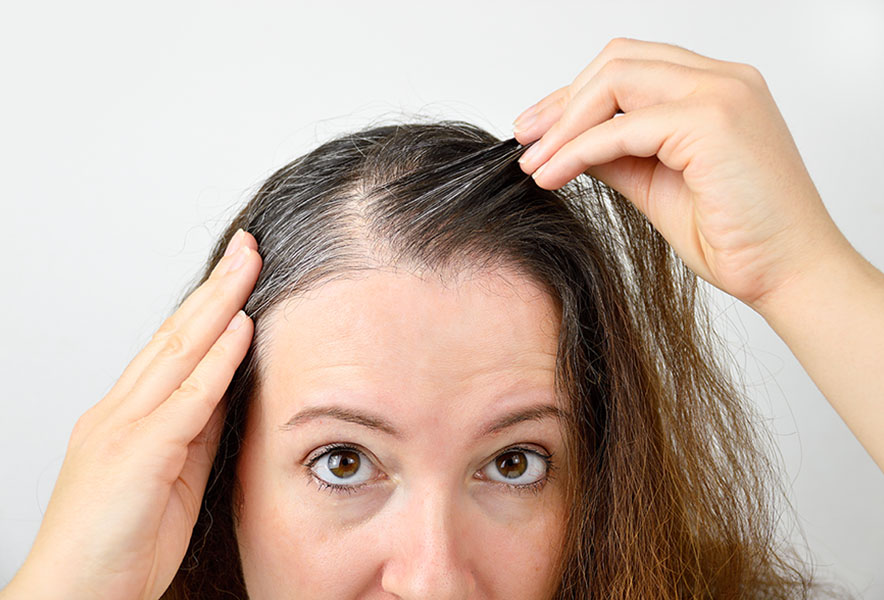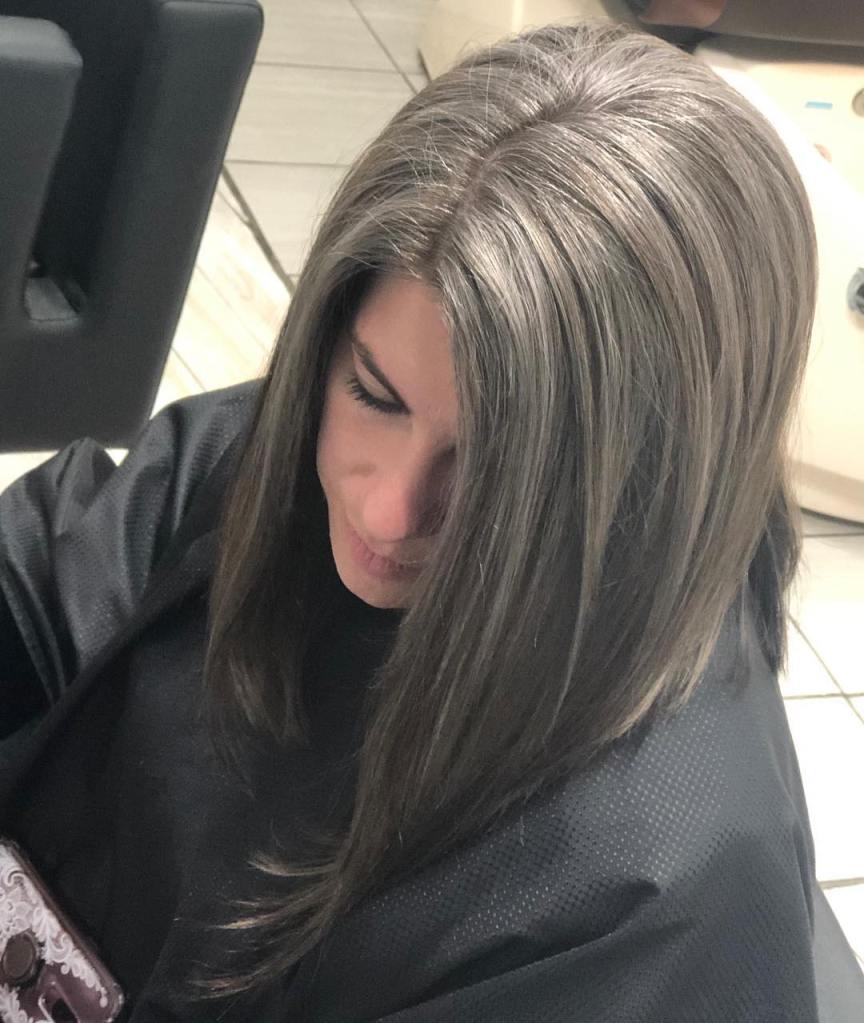Table Of Content

There are multiple reasons (including physical and psychological) that can cause you to shed more hair than usual. A person should contact a doctor for a blood test to check whether they have a nutritional deficiency that could be causing their hair to fall out. Certain medications have side effects that can cause hair to fall out. Other supplements meant to help with hair loss tend to contain a lot of one nutrient. Because this can cause you to get too much of the nutrient, many dermatologists recommend taking a multivitamin instead. While you can buy a microneedling device without a prescription, it’s best to check with your dermatologist first.

When should I call the doctor?
Some people may choose to use a scalp concealer, hair topper, or other product to cover hair loss. If your dermatologist suspects that the cause of your hair loss could be a disease, vitamin deficiency, hormone imbalance, or infection, you may need a blood test or scalp biopsy. If you’re not getting enough of one or more of these, you can have noticeable hair loss. A scalp infection can lead to scaly and sometimes inflamed areas on your scalp. You may see what look like small black dots on your scalp.
What are common causes of hair loss?
The best shampoo for hair loss in 2024 - Expert Reviews
The best shampoo for hair loss in 2024.
Posted: Tue, 09 Apr 2024 07:00:00 GMT [source]
Menopause can also lead to uncomfortable systemic symptoms such as night sweats, weight gain, and vaginal dryness, which may raise your overall stress levels. Treatment options for hair loss typically depend on the cause. They can also vary according to the pattern and location of hair loss.
Scalp Health
In women, androgenic alopecia can start to set on during the reproductive years, occurring later than it does in men. At 29, 12% of women start showing signs, but by 79, over half show symptoms. “If you feel like you’re losing an excessive amount of hair, talk to your doctor. More than half of all women experience noticeable hair loss over time. Anagen effluvium causes large amounts of hair to rapidly fall out during the anagen (growth) phase of the hair cycle. It may cause hair to fall out from the head, as well as from other parts of the body, including the eyebrows and eyelashes.
How is hair loss in women treated?
In one study of 166 women taking spironolactone, 42% said they had mild improvement, and 31% reported increased thickness. Depending on what’s causing your hair loss, it may be temporary or permanent. Treatments can help people with certain types of hair loss. For conditions like alopecia areata that may affect children as well as adults, groups can provide emotional support and even help you buy wigs or find other ways to cope. Regrowth continues for over a year, after which time it stabilizes.
Women who develop a hormonal imbalance can develop thinning hair (or hair loss) on their scalp. You can change how you care for your hair, which can prevent hair loss. Once you damage a hair follicle, hair cannot grow from that follicle. Having many damaged hair follicles creates permanent bald spots. With age, most people notice some hair loss because hair growth slows. At some point, hair follicles stop growing hair, which causes the hair on our scalp to thin.
Harvard Health Publishing
How to stop facial hair growth in females naturally - USA TODAY
How to stop facial hair growth in females naturally.
Posted: Sat, 04 Nov 2023 07:00:00 GMT [source]
Stress causes a large number of hairs in the active hair growth (anagen) phase to abruptly enter the resting (telogen) phase. When the hairs reenter the growth phase, the hairs that had been suspended in the resting phase are suddenly released. Taking hormones can change hair growth all over your body. Masculinizing hormone therapy (taking testosterone) may cause hair loss within a year, and the effects aren't reversible if you stop hormone treatment.
It can take the form of "thinning" or involve a total loss of hair. It can be gradual or sudden; it can affect the old and the young. Even periods of high emotional stress can lead to losing more hair than usual, but it’s important to check with your doctor to make sure that there’s nothing more serious going on.
Researchers have observed hair mild follicle shrinkage, resulting in thinner individual hair strands. A common cause of this imbalance is polycystic ovary syndrome (PCOS). It leads to cysts on a woman’s ovaries, along with other signs and symptoms, which can include hair loss. Stopping some types of birth control pills can cause a temporary hormonal imbalance.
Things that interfere with the growth cycle -- like medications, illnesses, infections, or chemicals -- have the potential to stop hair from being formed the right way. Beyond that, age, hormones, stress, and even the way you style your hair can lead to hair loss. Female hair loss happens when a woman, or anyone who was identified as female at birth, loses more hair than normal. About half of all women will have hair loss at some point in life.
Both acute stress (such as grief or an illness) and chronic stress can impact hair shedding. The types of hair loss caused or worsened by stress are telogen effluvium, alopecia areata and trichotillomania. Certain prescription medications7 can have the unwanted side effect of hair loss in women. If you’re concerned that your hair loss is caused by medication, talk to your doctor.
You'll soon start receiving the latest Mayo Clinic health information you requested in your inbox.
Medications that help balance hormone levels are where it’s at for these conditions. In the case of PCOS, this might involve birth control pills to regulate your menstrual cycle and lessen the impact androgens can have on your hair follicles. “Anti-androgen medications, such as spironolactone, may also be prescribed to counteract the effects of excess androgens,” Dr. Mitchell says. An expert will know how to determine whether your hair will grow back on its own or if you need a personalized treatment plan to turn things around. Dietary factors and nutrition can also play a role in male hair loss.
My consent will be valid for a period of one year from today, but I understand that I can withdraw my consent for this sharing at any time by clicking here. I understand that I can withdraw my consent for this sharing at any time by clicking here. I understand that I can withdraw my consent for this collection at any time by clicking here. A review study published in 2022 found that it significantly increases hair diameter and hair count in patients with several types of alopecia. It typically isn’t covered by insurance, and it can be expensive, Mirmirani says.
If you notice hair loss, talk to your doctor as soon as you can. Once the stress goes away, your hair may get back to normal in 6-9 months. You can have hair loss as a result of physical stress, like when you give birth or have surgery, or intense emotional stress, like a death in the family, divorce, or unemployment. Hair loss can happen a couple of weeks to 6 months after any stressful experience. The success of dealing with sudden excessive hair loss fully depends on the correct understanding of its causes.
See your dermatologist if you notice this type of hair loss. The sooner you start treatment, the better the chances for hair regrowth. “These medications help suppress the immune system’s overactivity and encourage hair regrowth,” Dr. Mitchell explains. The FDA also recently approved a new drug for severe cases of alopecia areata called Litfulo (generic name, ritlecitinib). The medication stimulates hair growth by quieting part of the immune system.














